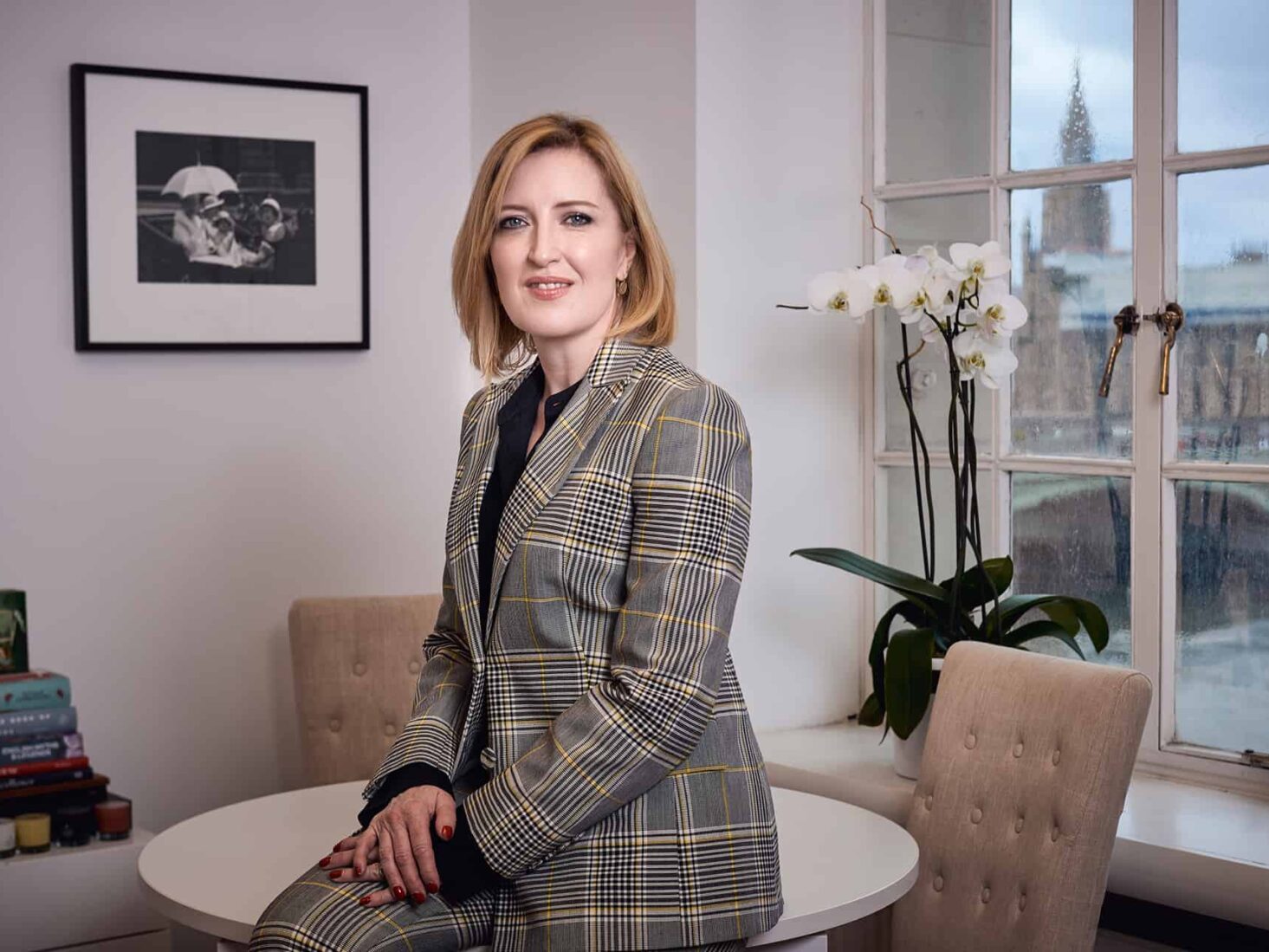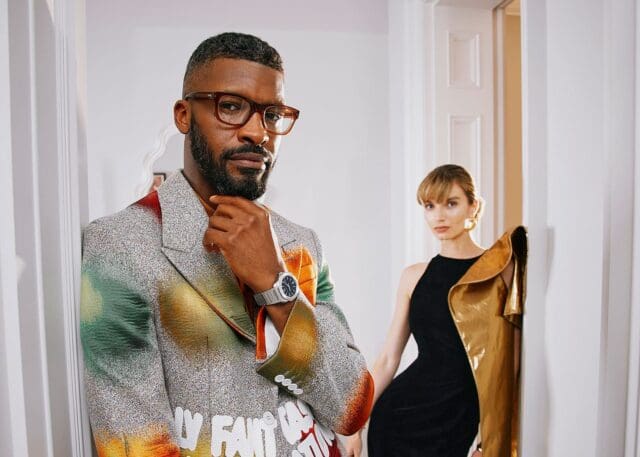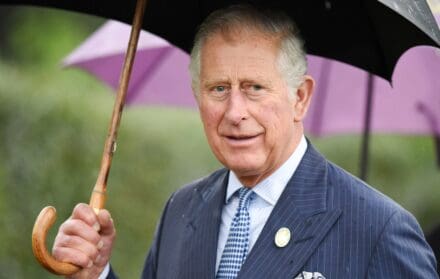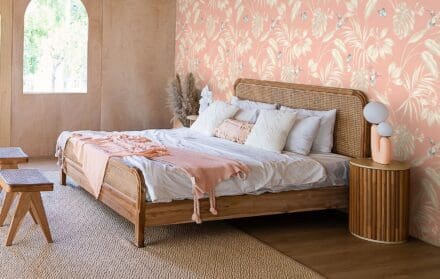
Women in Luxury: Helen Brocklebank, CEO of Walpole
On circuitous career paths and why failure isn’t always black and white
Welcome to the first instalment of Luxury London’s new Women in Luxury series, marking International Women’s Day 2023. Every month we’ll be shining the spotlight on leading female figures across the luxury sector, showcasing the achievements, struggles and realities of what it takes to be a woman at the top of her field in the modern business landscape. From founders and creative directors to C-suite executives, join us for insightful conversations with inspirational business figures across fashion, beauty, tech, property, travel and more.
“Being good is a craft, not an art.” If there’s a recurring theme that characterises my conversation with Helen Brocklebank this would be it. After three decades spent in commercial roles at some of luxury’s biggest household names, Brocklebank is now the CEO of Walpole or, as she prefers to be known, “the cheerleader-in-chief of the British luxury sector”. It’s a position she describes as a career highlight but also one she’s very clear didn’t fall into her lap by accident.
“Craft is about doing the same thing time and time and time again until you’ve got better,” she explains, our conversation touching on hustle culture and the rise of the uber-young CEO. “There’s that very shiny narrative we see of successful 30-somethings with their perfect lives. If it’s true then that’s amazing for them. Well done. But actually, on the whole, it’s worth putting the graft in. You’ve got to work hard to be lucky.”
Accordingly, Brocklebank’s own career is far from the tales of overnight success popularised online. In fact, she admits, after leaving university with a degree in English Literature and a plan no more defined than finish her book and maybe “do something that was fairly businessy”, it took some harsh financial reality to kick her into gear.
“My bank manager threatened to take my overdraft away,” she says. “He said, ‘You do realise you have to pay off your overdraft? You need to get a job.’ So I found myself opening a copy of The Guardian and there were postings for jobs in advertising. I thought, ‘That sounds pretty good, I can do that while I write my novel and work out what I really want to do.’ So I ended up working at Campaign selling ad space.”
Call it serendipity, or simply an aptitude for applying oneself to the task in hand, but it was a space in which Brocklebank excelled, finding herself genuinely interested in the way brands told their stories and a natural connector of people. Having, as she describes it, become “accidentally ambitious”, she set her sights on the luxury sector. In particular, a role working in the commercial team across glossy magazines Harper’s Bazaar and Esquire, before taking the leap and setting up her own business. Which is where things began to unravel.
“It was really tough in ways that I hadn’t expected. My business was turning over, I was making money, nothing on the surface was going wrong but I absolutely hated it,” she explains. “I learned that, if you’re in a hard situation, it’s not that you can’t resolve it, it’s just that it might not be a very comfortable process to do the work to find the solution.
“If somebody 20 years younger than me is looking for role models, am I going to be worthy of that?”
Helen Brocklebank
“I also learned that it’s okay that I didn’t love doing the thing I thought I would be amazing at; that I wasn’t the creative entrepreneur I had always envisaged. It didn’t make me a failure. I think it’s okay to say, ‘It’s not that I failed. I just don’t like it. My skill set is for other things.’”
When it later transpired that running a small business was a prerequisite for her role at Walpole, did it make the pain worth it? “I’ve always treated every job as an apprenticeship for the next one – even if it’s a role you’re not loving, or it’s hard or you don’t feel like you fit,” says Brocklebank.
“Your career is not always linear, particularly as a woman. If you have a sense of, what am I learning? What new skills am I developing? How is that in the service of my company, but also, how am I making myself better every day? That will stand you in good stead because there is nothing that is not transferable. There’s is very little I’m using now as CEO of Walpole that I didn’t plant the seeds for in that first job at Campaign.”
A librarian. I thought books were the best thing ever and a career that put me in the middle of books would be brilliant. I’d like to say I wanted to be an astronaut but, no. In my teenage years, I wanted to be a literary agent. This idea of being a cheerleader for other people’s success and creativity has been a theme throughout my career. You’re not the author of the thing you love, you’re the person that helps other people access it.
There was certainly a time, in the early ’90s, when all the clients, all the people in authority were men, and all the people selling were women. You could get yourself in some quite dodgy situations. You were a woman whose job it was to be attractive and charming because you wanted to do business with [these men]. They were blokes with money and power. You would have to be quite swift at getting yourself out of a situation where somebody expected the personal and the business might blur.
I was very quickly aware that some men in positions of power could be on the lookout for that blurring of the line [and] I was fortunate nothing ever happened to me. It just wouldn’t be on anybody’s mind now. That Me Too-ish context is really a distant memory and I’m very glad there are probably few women younger than me who’ve had to go through that.
"The women at the top were really important to me. You have to be able to see the people in the jobs that you might want."
Helen Brocklebank
The women at the top were really important to me. There were far fewer of them so I think they were very conscious of being real role models. You have to be able to see the people in the jobs that you might want. I think that’s now a much more common conversation when it comes to inclusion in the workplace, not just for women but for everybody who may not have the representation they should.
In the mid-90s, I was working on the Harvey Nichols magazine and Mary Portas was in charge of all the marketing. She was the most inspiring person imaginable; there was no conversation about what she wanted – she knew what she wanted – but in an inspiring, creative way. Working with her was a real eye-opener because here was a woman with power, but creative power and quiet power and soft power, as well as incredible creative competence. She was revelatory in what a woman could do in a luxury business.
I get up really early. If you’re leading an organisation, the truth is that you are never really off. People talk a lot about work-life balance and you have to find out what that means for you. But I also think that if you are in a leadership position in a job that you love, in a sector you love, with a team you love, you probably don’t spend a lot of time with the out-of-office switched on, mentally or physically. Your own passion for what you do says you will be on it for a lot of your waking hours and that’s your choice.
I’m very careful not to put my choice onto my team. So although I will often start doing things at six or seven, because I’m having a coffee and catching up with emails, I’m not about to start sending WhatsApp messages or emails to the team and expecting a response. If they come to me outside office hours that’s completely fine but, the other way around, I’m mindful of other people’s time.
I also go to the gym every morning because that is sanity for me. I like to lift weights. It sounds very unsexy but the psychological effect of being strong is powerful. The sense of achievement is really helpful. You can’t go from lifting no weights to lifting 100kg. You have to do the work. You can’t be good overnight.
You have to be visible. Whether that’s visible with your team, within your organisation or visible externally. You also need to have real focus and be decisive. You need to inspire confidence but you need to do that with empathy and kindness. It’s not about how you see yourself, it’s about how other people could see you. If somebody 20 years younger than me is looking for role models, am I going to be worthy of that? I do think that’s something women still carry that a man in a leadership position might not be conscious of.
There’s also a responsibility to facilitate the change you wish you had when you were at a different stage in your career. Make sure you’re holding down the hand to women coming up. Don’t haul up the ladder underneath you. Make sure that ladder has good sturdy rungs on it.
The biggest piece of advice I would give to any woman is that your career is a marathon and not a sprint. There’s a lot of external pressure but pace yourself. Know how to put muscle on your bones throughout your working life so that you don’t hit a wall. If that means you’re going to spend a couple of miles of that marathon walking and not running, that’s okay.
My career post-45 has been really fulfilling. In my thirties I had enormous anxiety that I think actually [was coming from] my biological clock. That sounds weird, but there’s a sense that your career has the same cut-off date as your fertility. You feel you’ve got to make those big work breakthroughs, you’ve got to find the partner, you’ve got to get the kids out. That’s really not the case. If you want to have children, there is a deadline but, as long as you’re learning and growing, if that’s the part of your career where you’re walking rather than running, that’s okay. You don’t need to do it all now.
Read more: How to celebrate International Women's Day in London






